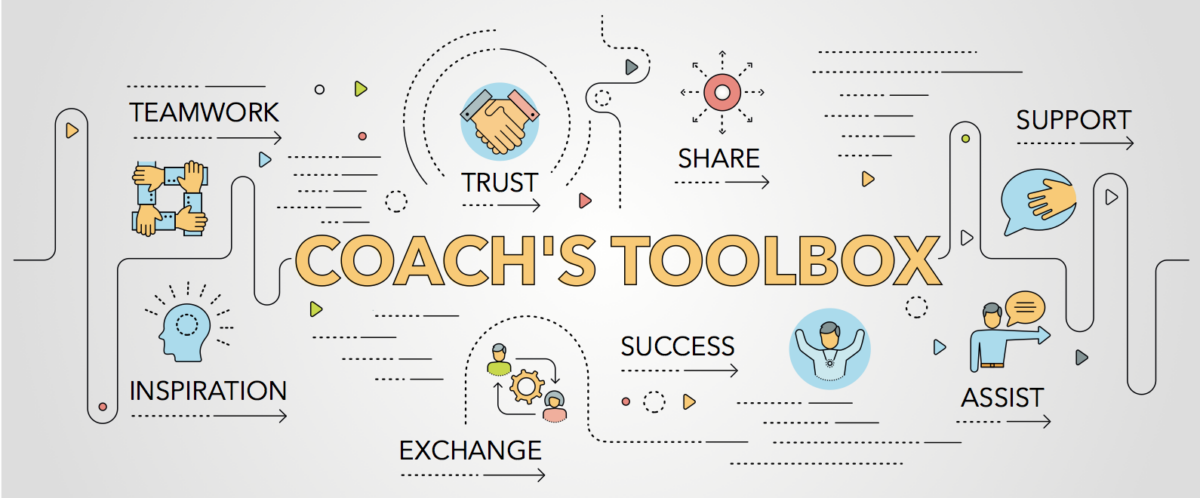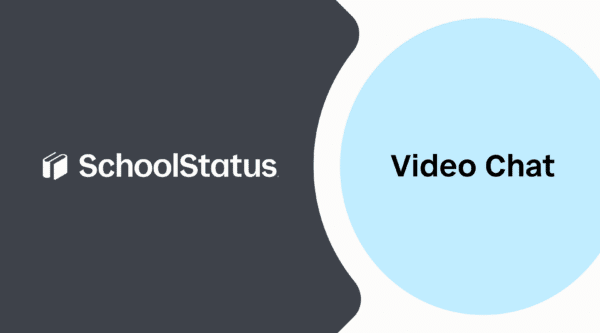


Alison Newby addresses a common question among instructional coaches on when and how to take notes during a coaching visit. Although it’s often a case by case basis, confidentiality and other facts must be considered when making the decision.
TeachBoost continues to learn and share experiences, skills, and tools from instructional coaches through our “Your Coaching Toolbox” and “First Year as a Coach” series. If you’re looking for additional coaching articles sent straight to your inbox be sure join our weekly coaching newsletter!
C
oaching is an intriguing occupation. There’s usually not a straightforward answer to any question, however simple it may seem. For example, taking notes in coaching sessions—some people say you should; some people say you shouldn’t; while others say maybe you should, maybe you shouldn’t, depending on the context!
Let’s take a look at this issue from different perspectives, outlining the kinds of things we might think about to help us decide whether to take notes or not on particular occasions. Don’t be surprised if there isn’t one answer: that doesn’t really matter if we have a process of thinking which helps us tease out the best course of action according to the context we’re facing at the time.
Back to Basics
Let’s start with coaching fundamentals: what would a basic coaching answer to the question be?
Coaching focuses on the coachee—the coachee’s needs, what the coachee believes the issues are, how to facilitate the coachee’s thinking around those issues, the coachee’s experience in the moment, and what the coachee comes to believe the solutions might be. Our attention as coaches, therefore, should be on our coachees and in coaching terms, we should view them as “experts” in their own issues. It’s true their potential solutions to those issues are likely still vague or completely buried in their psyches, but that’s why we’re there to help them. Coaches are facilitators of coachee thinking.
All of that’s fine, but if we’re not writing anything down how can we be confident to remember everything we need to remember from our sessions? Isn’t it essential we take notes? Not necessarily! Over time, with experience, and by putting our attention fully on the coachees rather than ourselves, we can strengthen our ability to retain whatever information might be relevant for the future. After a coaching session, recording insights or next steps by writing them down in a secure system can also be helpful. Bear in mind that as the session progresses the emphasis might change, the focus might change, and yes, what is relevant to remember might change as well.
This means that making notes in the moment might become a distraction from deep listening to coachees, from paying close attention so that we can pick up all those non-verbal cues and signals we need to be capturing, and from having “whole body awareness” of our own reactions to what’s happening for coachees in the moment. These are fundamental to coaching.
So my default starting position on taking notes during a coaching session is “don’t do it.” Yes, for clarity I and a coachee make notes at the end of a session to capture what we worked on, as well as any action points agreed, and I’ll make some brief notes for myself after the session to jog my memory before the next meeting. But in general I won’t distract myself or my coachees during sessions by scribbling away in my notebook.
What to Think About Prior to Taking Notes
If my starting position is not to take notes, that doesn’t mean I never take notes in sessions. How do I decide? By thinking very carefully about issues such as the following.
Psychological Effect on Coachees
Here we’re considering the personality and experience of our coachees, the circumstances of the coaching meetings, and whether taking notes might affect the level of rapport that’s already been built up or needs to be built up in the future.
In an educational setting, we might be working with a coachee 1:1, in a group, or in the classroom and each of these settings differs in terms of coachee psychology. If we’re in the classroom, will taking notes induce in coachees a nervous “assessment” mentality, ringing all the wrong bells and affecting their confidence as well as our rapport? If the coaching’s 1:1, will taking notes cause coachees to close in on themselves? Could it form a barrier between us? Or might it actually serve to engage coachees more in the process?
There isn’t one answer to any of these questions, and this isn’t an exhaustive list of what we could be asking, but they do illustrate the challenges and considerations. We always need to be thinking about such issues and feed them consistently into our planning so we’re sure we’ve considered each time how coachees might be affected psychologically in the moment.
Confidentiality
Confidentiality is a big issue in coaching. Without being assured of confidentiality, no coachee would be confident to discuss issues that may be painful, embarrassing, or expose some measure of weakness. The issue of confidentiality needs to be thought through clearly and carefully.
If we’re adhering to the ethics and standards of a particular coaching organization (such as the Association for Coaching or the International Coach Federation) we’ll be working to set standards regarding confidentiality. Generally, everything that’s said or happens in a session is covered (including notes taken before or after) except where illegality, danger to coachees and/or third parties, or the breaking of organizational rules come to light. All of this needs to be explained clearly to coachees before coaching commences.
This might seem obvious but it’s important to remember that coaching relationships come in many varieties. If we’re coaching 1:1 with no further stakeholders, it’s quite straight forward, but if there are other stakeholders to the coaching things can get complicated. Managers, administrators, mentors, colleagues: more stakeholders means we need to both be careful with the issue of confidentiality and be seen to be careful.
Each stakeholder needs to understand the parameters of confidentiality relating to the particular case. If feedback from the coaching session is required, it’s essential to agree with all concerned parties what the content and format of that feedback will be, as well as how and by whom it will be delivered (coach or coachee, on paper or via a feedback tool?). Coachees need to understand and agree to all this as well, and it’s best to discuss with them in private as well as in the presence of other stakeholders in order to ensure that their feelings can be assessed and factored into deliberations.
Why all this fuss? And what has it got to do with taking notes?! If coachees can’t be confident in the confidentiality of the sessions (and by extension the coaching process itself), there’s no way they’ll be confident to bare their souls to expose frailties and difficulties. Without trust in the confidentiality of the process a coach might be perceived more as a “spy” than a “facilitating friend,” and note-taking in such circumstances might only make the situation worse as coachees become more and more alienated through the process.
This means forming a view as best we can about the “culture” of the organization in which we may be working beyond pleasantries and handshaking. Coachees always work within contexts.
Administrative or Procedural Requirements
If a coach works in organizational settings, there’s always going to be some degree of form-filling, box-ticking, and information capture, and the education sector is no exception. Coaches need to make it their business to find out exactly what each district and/or organization’s requirements are, bearing in mind that requirements may vary. The result of this inquiry might affect our decision on note-taking, especially if a requirement means particular coaching information must be recorded for some administrative or procedural reason.
Where it’s necessary to make a note of something for administrative purposes, as with confidentiality, this needs to be explained clearly to coachees. Transparency builds trust and rapport. When such explanations are omitted, there’s a chance coachees may perceive information differently than intended by the coach; this can irreparably damage a coaching relationship and the bedrock of trust can be lost.
Final Note
Clearly there’s no one answer to the question of whether or not to take notes in coaching sessions. From what we’ve explored, the best policy is to start off from the basic coaching position that writing everything down may not be necessary and modifying this as needed. Factors to bear in mind include the psychological effect on the coachee, aspects of confidentiality, and whether there’s some administrative or procedural requirement for the recording of certain types of information.You might think of other factors yourself depending on the circumstances in which you’re working and using tools to record and track coaching progress with confidentiality settings built-in can likewise help mitigate these concerns during coaching sessions.
Beyond these considerations, however, we need to remember what we’re with a coachee for in the first place. Once we’ve put in place a suitable approach to note-taking, we need to be getting on with what we and the coachees are hoping to achieve—facilitation of coachee thinking on whatever issue is the subject of the coaching. And the best of luck to us all!
About our Guest Blogger
Alison is an Honorary Research Associate at the University of Manchester’s Ahmed Iqbal Ullah Race Relations Resource Centre in the UK, where she produces history-based materials for both public and academic engagement. She is also an Institute of Leadership Management qualified coach specializing in coaching staff and researchers at all levels, who enjoys feeding her coaching approach into facilitating workshops on study and research skills for students. Alison earned her Ph.D. from the University of Manchester in American social and political history. She writes on coaching issues regularly, including producing her own blog.
Follow Alison on Twitter @NewbyCoachLive.
{{cta(‘352a410e-db79-4f33-a482-d301e8041965′,’justifycenter’)}}
Stay Connected
News, articles, and tips for meeting your district's goals - delivered to your inbox.








